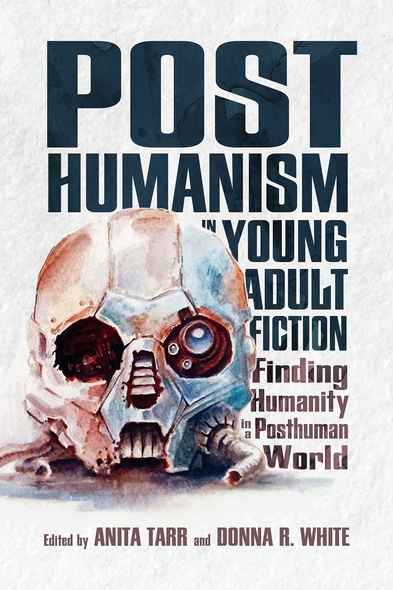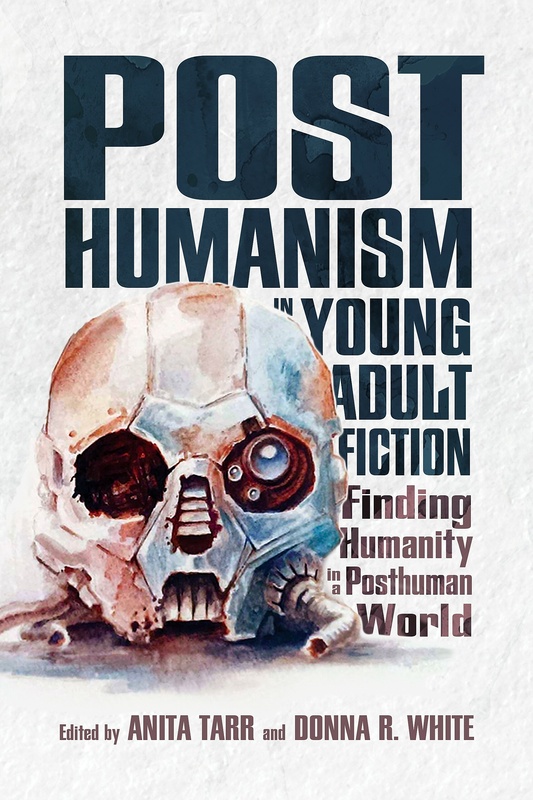
Posthumanism in Young Adult Fiction
Finding Humanity in a Posthuman World
Contributions by Torsten Caeners, Phoebe Chen, Mathieu Donner, Shannon Hervey, Angela S. Insenga, Patricia Kennon, Maryna Matlock, Ferne Merrylees, Lars Schmeink, Anita Tarr, Tony M. Vinci, and Donna R. White
For centuries, humanism has provided a paradigm for what it means to be human: a rational, unique, unified, universal, autonomous being. Recently, however, a new philosophical approach, posthumanism, has questioned these assumptions, asserting that being human is not a fixed state but one always dynamic and evolving. Restrictive boundaries are no longer in play, and we do not define who we are by delineating what we are not (animal, machine, monster). There is no one aspect that makes a being human—self-awareness, emotion, artistic expression, or problem-solving—since human characteristics reside in other species along with shared DNA. Instead, posthumanism looks at the ways our bodies, intelligence, and behavior connect and interact with the environment, technology, and other species.
In Posthumanism in Young Adult Fiction: Finding Humanity in a Posthuman World, editors Anita Tarr and Donna R. White collect twelve essays that explore this new discipline’s relevance in young adult literature. Adolescents often tangle with many issues raised by posthumanist theory, such as body issues. The in-betweenness of adolescence makes stories for young adults ripe for posthumanist study. Contributors to the volume explore ideas of posthumanism, including democratization of power, body enhancements, hybridity, multiplicity/plurality, and the environment, by analyzing recent works for young adults, including award-winners like Paolo Bacigalupi’s Ship Breaker and Nancy Farmer’s The House of the Scorpion, as well as the works of Octavia Butler and China Miéville.
Posthumanism in Young Adult Fiction is a much-needed addition to the scholarship on the posthuman and posthumanism in young adult literature.
As long as we are in the realm of human literary works and engage with their capacities to interrogate the ‘other’ and the ‘after’, anthologies such as this will remain a helpful source of reference.
Overall, the collection includes an impressive range of perspectives and approaches within the posthumanist focus, making it representative of the richness this critical lens can offer to the field of children’s and YA literature.
The collection as a whole thoroughly justifies the relevance of further investigation into the intersection of young adult fiction and posthumanism.
Posthumanism in Young Adult Fiction is a fascinating and critically insightful addition to the growing body of scholarly work that examines how literary texts for adolescent readers engage with posthumanism. Tarr and White have brought together an eclectic collection of essays which consider key posthumanist issues—such as networked subjectivities and embodiment—from a feminist lens that is acutely attuned to the discourses of power that affect adolescent identity formation.
Anita Tarr is a retired professor of English at Illinois State University. Her work has appeared in Children’s Literature Association Quarterly and The Lion and the Unicorn, among other journals. Donna R. White is professor of English at Arkansas Tech University. She is coeditor of Kenneth Grahame’s "The Wind in the Willows": A Children’s Classic at 100, winner of the Children’s Literature Association’s Edited Book Award in 2012.




